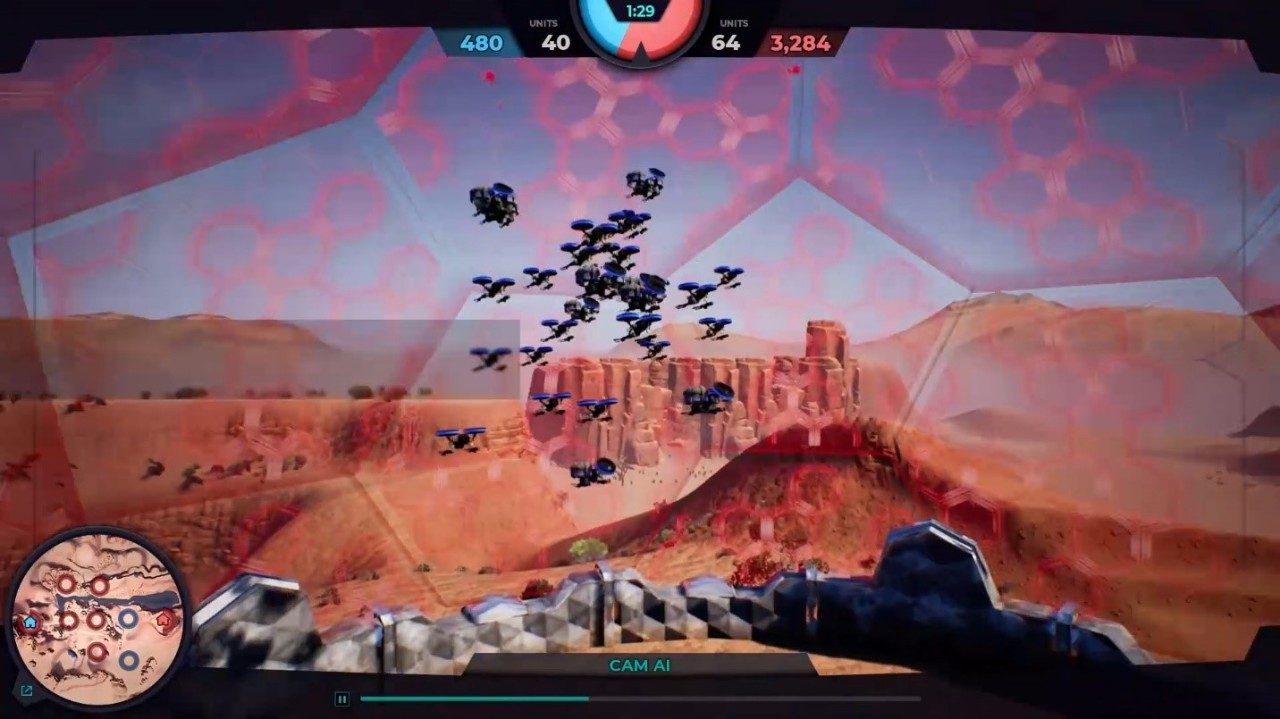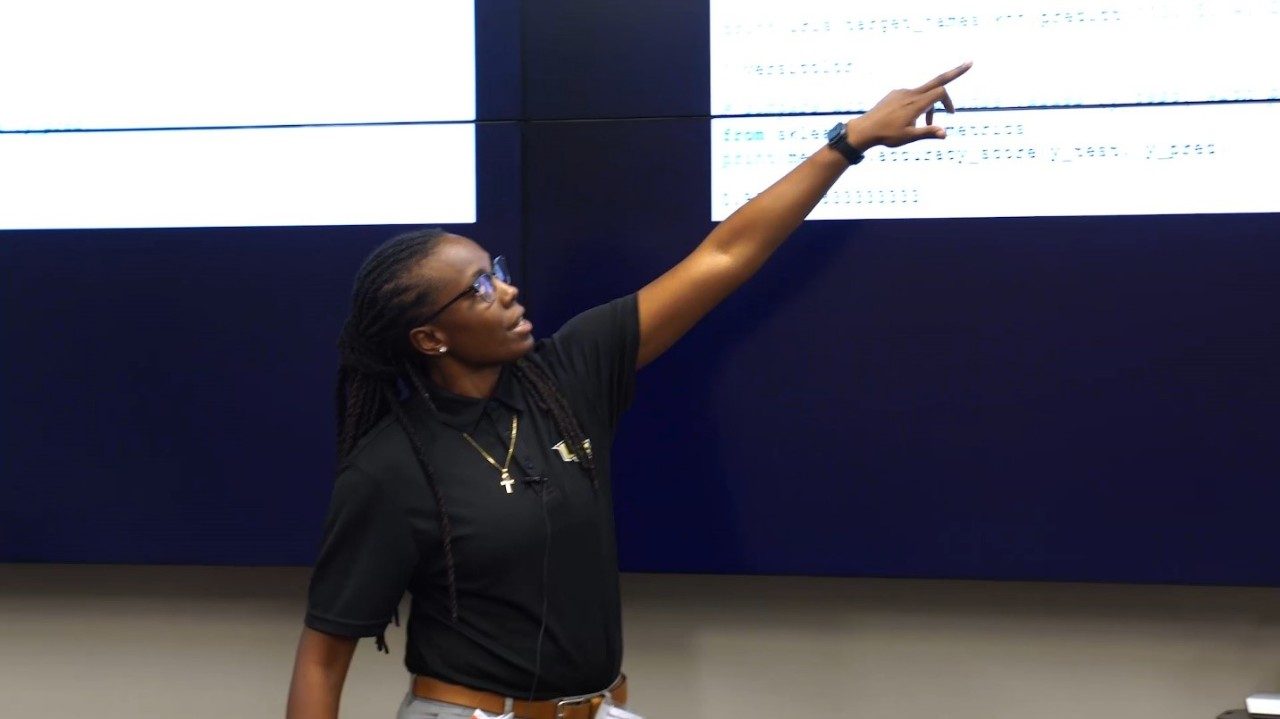As a company that has worked with customers around the world for more than a century, Lockheed Martin understands customers’ challenges and is developing advanced technologies to confront them. Our 21st Century Warfare vision is designed to help our customers leverage emerging technologies – artificial intelligence (AI), 5G connectivity and advanced computing – to seamlessly and securely connect all assets in the joint battlespace and enable fast and decisive action.
In this future battlespace, AI will play a key role using algorithms that can be trained to recognize standard system operations and alert operators to differences, leading to reduced response times to potential attacks.
Now in its second year, the AI Wargame program equips employees with crucial AI skills and allows them to test these skills in real-world scenarios. To help accelerate learnings, Lockheed Martin has partnered with the open-source community and key universities.
“The objective of AI Wargame is to partner with the open-source developer community, which is a first for our industry, and refine our own skill sets by learning, testing and advancing different theories,” said Rebecca Broadway, who runs the AI Wargames program for Lockheed Martin’s Advanced Programs New Initiatives group at Missiles and Fire Control. “Having a way for our employees to advance these skills makes us more efficient and effective in delivering quality products to our customer, while also allowing us to recruit the best and brightest talent in this field.”

AI Wargame allows teams to test and advance their machine learning, reinforcement learning and analytics skills in real-world scenarios.
The program is divided into three main areas: Reinforcement Learning, Analytics Engine and Game Development.
1. Reinforcement Learning
Reinforcement learning is an area of machine learning where software agents learn how to act in an environment to maximize their expected cumulative reward. Teams will use these reinforcement-learning algorithms to create decision engines that actually play the game with the goal of developing an agent with a high win rate.
2. Analytics Engine
This area breaks the AI environment into smaller pieces, letting the teams dissect and analyze what happens inside the wargame. The rudimentary environment allows the teams to find strategies which produce the most wins using data, and create a real-time engine to predict the likelihood to win. It also analyzes the reasons why you won or lost against another opponent.
3. Game Development
Teams are adding new capabilities within the AI game including this year adding 3D maps, intelligent targeting, unit selection for asymmetric gameplay and communication capabilities.
Establishing A Talent Pipeline
One example is University of Central Florida alumna Shauna Hyppolite, who participated on the Analytics Engine team last year. She now works at Lockheed Martin Skunk Works® as a software engineer associate applying artificial intelligence in support of the future battlespace.

Shauna characterizes certain win outputs during a 2019 UCF AI Wargame initiative at Lockheed Martin Missiles and Fire Control in Orlando, Florida
“AI development will help strengthen Lockheed Martin because it will help our customers get access to the latest intelligent technology while staying ahead of the opponent and keeping us and our allies safe,” she said. “We can help our customers facilitate autonomous operations and intelligent warfare through more informed decision making, enable security systems to find cyberattack patterns, target recognition and location determination, increase situational awareness, response time, and efficiency while reducing human operational efforts – the opportunities and domains are endless.”
"The AI Wargame program provides hands-on programming experiences applied to wargaming. Learning how this programming works, its limitations and advantages, will benefit our students and the country’s military leaders," said Gary Leavens, chair, UCF Department of Computer Science.
To learn more about AI Wargame and see previous work, visit GitHub; and for information on how you can join the Lockheed Martin team, visit our careers page.




